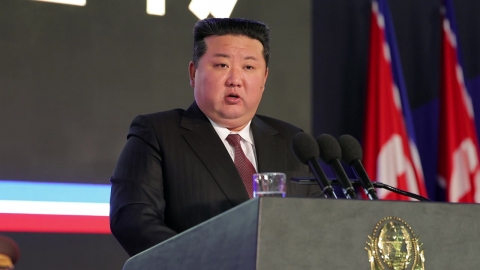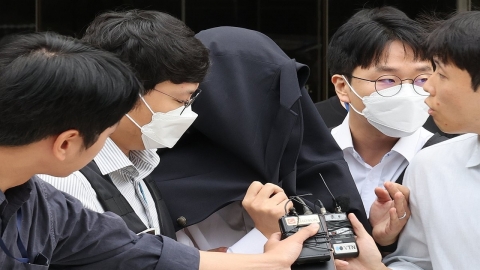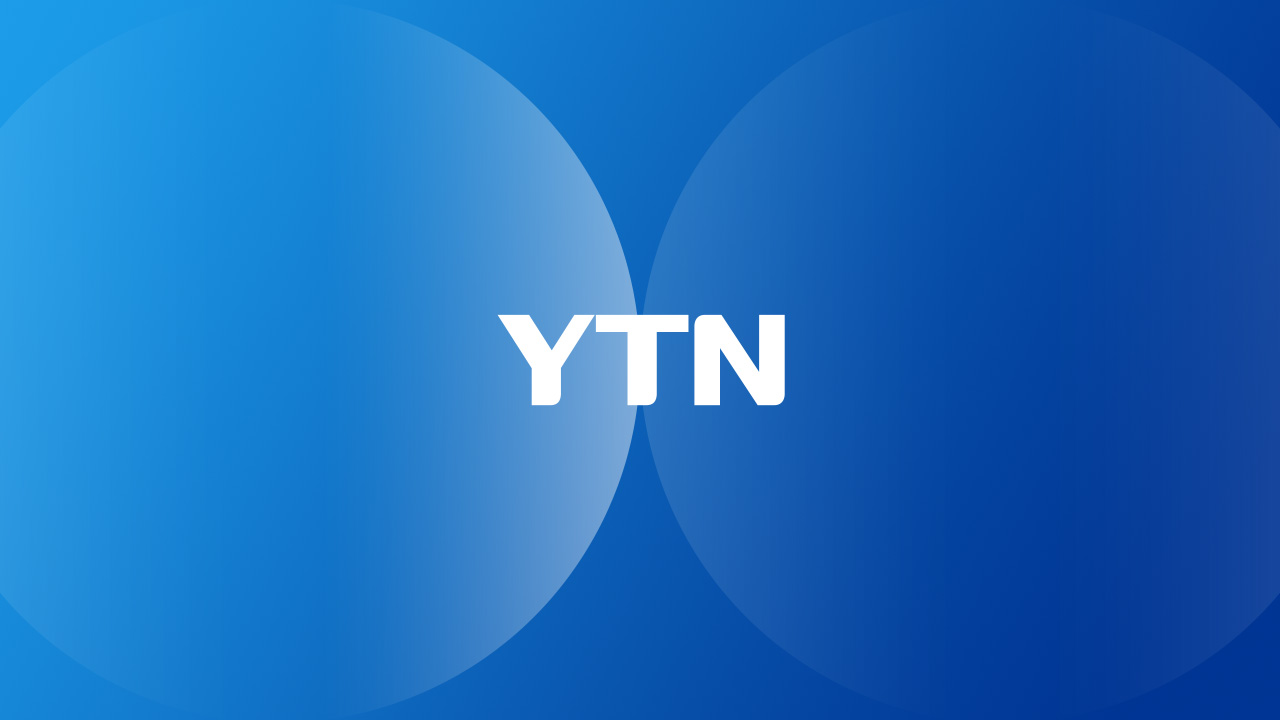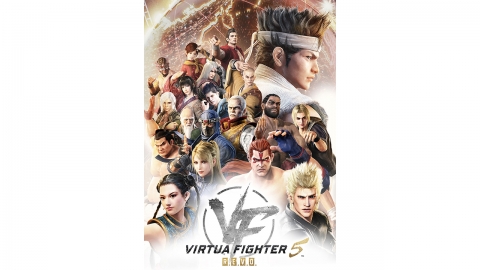"Hani, you're not a worker." Three reasons why the incumbent labor attorney pointed out
이미지 확대 보기

YTN Radio (FM 94.5) [YTN News FM Wise Radio Life]
□ Broadcast Date: November 21, 2024 (Thursday)
□ Host: Announcer Park Gui-bin
□ Castor: Kim Hyo-shin, Labor Minister
* The text below may differ from the actual broadcast content, so please check the broadcast for more accurate information.
□ Broadcast Date: November 21, 2024 (Thursday)
□ Host: Announcer Park Gui-bin
□ Castor: Kim Hyo-shin, Labor Minister
* The text below may differ from the actual broadcast content, so please check the broadcast for more accurate information.
◆ Announcer Park Gui-bin (hereinafter referred to as Park Gui-bin): It's time to be with labor attorney Kim Hyo-shin of the Labor Law Aldonno Pine Labor Law Office, which makes money to know. The Ministry of Employment and Labor did not admit to workplace harassment against Hani, a member of New Jin's who attended the parliamentary audit in October as a reference. It was because Hani is not a worker. What we were most curious about was Kim Yu-shin, actually, we talked about labor history once. At that time, it was a part of whether Hani's experiences would constitute bullying in the workplace, but in fact, the question does not seem to have been solved exactly now. Let's talk about the reason why you said you weren't a bullying worker in the workplace and some limitations. Let's meet through Kim Hyo-shin's video. Hello, Mr. Labor.
◇ Kim Hyo-shin, a labor attorney (hereinafter referred to as Kim Hyo-shin): Hello, I'm Kim Hyo-shin.
◆Park Gui-bin: Nice to meet you. Let's start talking about Hani. No workplace harassment was recognized. Why wasn't it recognized?
◇ Kim Hyo-shin: That's why I'm not a worker. Since they are celebrities, there are not many cases where celebrities have been recognized as workers. And we are now defined in the Labor Standards Act as those who provide work to workplaces for wages regardless of the type of job. This rule alone doesn't make sense. Then, our case law specifically suggests that the form of the contract is not important and that the substance should be judged based on whether or not the employer was provided with work in a dependent relationship for wage purposes.
◆Park Gui-bin: But when Hani applied those standards, the Ministry of Employment and Labor revealed that she was not a worker. Then I'll have to point this out. First of all, what are the contents of the law to be recognized as a worker?
◇Kim Hyo-shin: Of course, it's not that difficult to be recognized as a worker if you write an employment contract. Like this, we signed a freelance contract or a service contract, but later on, the form of the contract is not important, and it is important to look into the substance to see whether or not our subordinate relationship is recognized for wage purposes. Dependency can now be divided into two parts. Social dependency and economic dependency. Social dependency is whether you worked under command. So, it is to determine who made the decision on the work content, whether there was a considerable command and supervision, or whether working hours and work places were restricted. Economic dependency is about who owns the work tool, hiring a third party to replace my work, and then sharing the risk-taking relationship with the company's operations. Next, the continuity of the labor relationship, the exclusive nature of the employer, and whether receiving compensation is the subject of the work itself. Next, we are looking at whether we paid the basic salary or earned income tax, but in fact, the basic salary is set or the withholding tax has a lot of room for the user to decide arbitrarily, so it doesn't matter much whether there is one or not.
◆Park Gui-bin: Under the Labor Standards Act, we recognize the nature of the worker as those standards that the labor attorney has given us. Then, can you explain why Hani is not a worker according to the criteria you pointed out now?
◇Kim Hyo-shin: The first is that Hani and the company have signed a management contract. But the contract doesn't seem to be just a formality. The nature of the contract and its contents is, so it is not a contract for the purpose of wages in a dependent relationship. He said that it is difficult to say that Hani was directed and supervised by the company because it is a contract that fulfills each contractual obligation in the position of equal contracting parties. In addition, private regulations or institutional systems applied to general employees were not applied. It's because there is no fixed working hours or work place, so I can't set the commuting time. Then, it was suggested that the expenses required for entertainment activities would be shared.
◆Park Gui-bin: When you explained certain standards set by law as a worker earlier, you said that wages should be the most important purpose and subordinate relationships are the most important core, but you're saying that's not right?
◇ Kim Hyo-shin: That's right. It means that there seems to be little dependency. It doesn't seem to have received significant command and supervision, and then here, we see that the two share the risk-bearing relationship in the operation of the company, such as sharing the necessary expenses mentioned earlier. For example, Hani is a top star now. If you step up as a top star, many masters are waiting. I think there was a certain operating burden relationship there.
◆Park Gui-bin: Hani has Vietnamese and Australian citizenship. That's why I'm a foreigner. So would foreigners have had an impact on this?
◇ Kim Hyo-shin: That's not true. Our Labor Standards Act. Secularism is the principle. What this subterraneanism is is that it applies equally to everyone within the territory of that country. So, not many people know that foreign workers are also subject to our Labor Standards Act. If you are a foreigner, you think you will be subject to other laws, but I will tell you that you will be subject to the same Labor Standards Act.
◆Park Gui-bin: So anyway, under the current Labor Standards Act, Hani is not a worker, so she was not recognized as a worker, so the bullying in the workplace itself is now impossible to consider. Then, if Hani was recognized as a worker, didn't Hani come out to the National Assembly at the time and talk about what she went through? People treat themselves as invisible and ignore them. Do these things constitute bullying in the workplace if they were real workers?
◇Kim Hyo-shin: Actually, what you said on YouTube and what was said in the audit were almost the same, and there were not many more. So, you have to consider whether there is a fact about this, and whether the manager and the manager of another company are workers belonging to the same company, but when I see the attitude of neglect and comments like this, my personal opinion is a triangle.
◆Park Gui-bin: As a labor attorney, this is a triangle?
◇Kim Hyo-shin: Yes. There is actually a little difficulty in calling this workplace harassment conclusively. This is because there is a requirement that workplace harassment under the current Labor Standards Act will exceed the appropriate scope for work. However, it does not stipulate whether the act is a one-time act or whether it continues or has been repeated, so any one-time act, such as verbal abuse, is considered bullying, but we are not within the proper scope of each other's work and there are personal grievances. So, even if the grievance has persisted, there are cases where it does not constitute bullying in the workplace just because it is a personal grievance. So, in my opinion, the manager needs to go over the situation a little more regardless of his intention. So it's hard to say that it's unconditionally bullying in the workplace.
◆Park Gui-bin: Considering the circumstances of the time and the continuity of the situation, it may or may not be bullying in the workplace.
◇ Kim Hyo-shin: That's right. This is because workplace harassment should be beyond the appropriate scope for work and result in mental and physical pain, but it is not easy to determine whether it is beyond the appropriate range for work.
◆Park Gwibin: I see. Anyway, with the judgment of the Ministry of Employment and Labor this time, various opinions seem to be coming out. There seems to be an opinion that if there are workers who earn 5.2 billion won a year, tell me, and there seems to be an opinion that if they are not workers, then they can bully them. But what I want to point out is that this is limited to Hani, so there are many people who work as freelancers rather than workers. In the process of actually doing your job and making money, in a way, these people might be in the blind spot of this labor law. What should I do?
◇ Kim Hyo-shin: In fact, the current system I mentioned here still does not solve these people's acts of destroying personal rights, such as ignoring what happens in the workplace or working environment. That's why there are calls from political circles to supplement the system, but it's unclear how public this will be. In the case of Hani, this is not a workplace harassment because she is not a worker, but in fact, there should not be comments or actions that ignore others in the workplace. But in the case of freelancers, service contractors, and subcontractors over there, those things are happening so often. So, there are still many things to supplement systematically, but before that, we are each other in the same working environment in our workplace, so we are my family.I can't tell you until now, but I think you should get along well by forming a culture of consideration or respect for each other first.
◆Park Gui-bin: Let me ask you a question. Usually, when you think of bullying in the workplace, you think about directions, such as the age of your subordinates, who are lower than you, but is the opposite also true of bullying in the workplace? So, the younger and more junior continued to harass the superior. Is this workplace bullying, too?
◇Kim Hyo-shin: It's possible. Advantage doesn't always target its superiors. The advantage is that we look at everything broadly, such as our numerical advantage, age, and ability. So, if the subordinate is older than the superior or in this case, of course, the superiority can be widely recognized. That's why there are things these days where subordinates don't recognize this superiority over their superiors, and how they break the command and command system well and do something. But you have to be careful about that part, too. In the case of subordinates, workplace harassment against superiors has also been reported. I can tell you that I am being recognized and punished for that.
◆Park Gui-bin: What is dominance?
◇ Kim Hyo-shin: The advantage is. I'm talking about how I can control that person not only in any position, but also in terms of numerical superiority, other degrees, academic background, age, delay, school ties, etc.
◆Park Gui-bin: You have a wide range of advantages.
◇Kim Hyo-shin: It's quite spacious. That's why subordinates can also gain the upper hand over superiors.
◆Park Gwibin: I see. Anyway, if you didn't bother each other at work, you shouldn't. I think you pointed out something very important today. So, I'll stop here with what's prepared for today. Thank you, Mr. Labor.
◇Kim Hyo-shin: Thank you.
◆Park Gui-bin: This was Kim Hyo-shin, a labor attorney.
◇ Kim Hyo-shin, a labor attorney (hereinafter referred to as Kim Hyo-shin): Hello, I'm Kim Hyo-shin.
◆Park Gui-bin: Nice to meet you. Let's start talking about Hani. No workplace harassment was recognized. Why wasn't it recognized?
◇ Kim Hyo-shin: That's why I'm not a worker. Since they are celebrities, there are not many cases where celebrities have been recognized as workers. And we are now defined in the Labor Standards Act as those who provide work to workplaces for wages regardless of the type of job. This rule alone doesn't make sense. Then, our case law specifically suggests that the form of the contract is not important and that the substance should be judged based on whether or not the employer was provided with work in a dependent relationship for wage purposes.
◆Park Gui-bin: But when Hani applied those standards, the Ministry of Employment and Labor revealed that she was not a worker. Then I'll have to point this out. First of all, what are the contents of the law to be recognized as a worker?
◇Kim Hyo-shin: Of course, it's not that difficult to be recognized as a worker if you write an employment contract. Like this, we signed a freelance contract or a service contract, but later on, the form of the contract is not important, and it is important to look into the substance to see whether or not our subordinate relationship is recognized for wage purposes. Dependency can now be divided into two parts. Social dependency and economic dependency. Social dependency is whether you worked under command. So, it is to determine who made the decision on the work content, whether there was a considerable command and supervision, or whether working hours and work places were restricted. Economic dependency is about who owns the work tool, hiring a third party to replace my work, and then sharing the risk-taking relationship with the company's operations. Next, the continuity of the labor relationship, the exclusive nature of the employer, and whether receiving compensation is the subject of the work itself. Next, we are looking at whether we paid the basic salary or earned income tax, but in fact, the basic salary is set or the withholding tax has a lot of room for the user to decide arbitrarily, so it doesn't matter much whether there is one or not.
◆Park Gui-bin: Under the Labor Standards Act, we recognize the nature of the worker as those standards that the labor attorney has given us. Then, can you explain why Hani is not a worker according to the criteria you pointed out now?
◇Kim Hyo-shin: The first is that Hani and the company have signed a management contract. But the contract doesn't seem to be just a formality. The nature of the contract and its contents is, so it is not a contract for the purpose of wages in a dependent relationship. He said that it is difficult to say that Hani was directed and supervised by the company because it is a contract that fulfills each contractual obligation in the position of equal contracting parties. In addition, private regulations or institutional systems applied to general employees were not applied. It's because there is no fixed working hours or work place, so I can't set the commuting time. Then, it was suggested that the expenses required for entertainment activities would be shared.
◆Park Gui-bin: When you explained certain standards set by law as a worker earlier, you said that wages should be the most important purpose and subordinate relationships are the most important core, but you're saying that's not right?
◇ Kim Hyo-shin: That's right. It means that there seems to be little dependency. It doesn't seem to have received significant command and supervision, and then here, we see that the two share the risk-bearing relationship in the operation of the company, such as sharing the necessary expenses mentioned earlier. For example, Hani is a top star now. If you step up as a top star, many masters are waiting. I think there was a certain operating burden relationship there.
◆Park Gui-bin: Hani has Vietnamese and Australian citizenship. That's why I'm a foreigner. So would foreigners have had an impact on this?
◇ Kim Hyo-shin: That's not true. Our Labor Standards Act. Secularism is the principle. What this subterraneanism is is that it applies equally to everyone within the territory of that country. So, not many people know that foreign workers are also subject to our Labor Standards Act. If you are a foreigner, you think you will be subject to other laws, but I will tell you that you will be subject to the same Labor Standards Act.
◆Park Gui-bin: So anyway, under the current Labor Standards Act, Hani is not a worker, so she was not recognized as a worker, so the bullying in the workplace itself is now impossible to consider. Then, if Hani was recognized as a worker, didn't Hani come out to the National Assembly at the time and talk about what she went through? People treat themselves as invisible and ignore them. Do these things constitute bullying in the workplace if they were real workers?
◇Kim Hyo-shin: Actually, what you said on YouTube and what was said in the audit were almost the same, and there were not many more. So, you have to consider whether there is a fact about this, and whether the manager and the manager of another company are workers belonging to the same company, but when I see the attitude of neglect and comments like this, my personal opinion is a triangle.
◆Park Gui-bin: As a labor attorney, this is a triangle?
◇Kim Hyo-shin: Yes. There is actually a little difficulty in calling this workplace harassment conclusively. This is because there is a requirement that workplace harassment under the current Labor Standards Act will exceed the appropriate scope for work. However, it does not stipulate whether the act is a one-time act or whether it continues or has been repeated, so any one-time act, such as verbal abuse, is considered bullying, but we are not within the proper scope of each other's work and there are personal grievances. So, even if the grievance has persisted, there are cases where it does not constitute bullying in the workplace just because it is a personal grievance. So, in my opinion, the manager needs to go over the situation a little more regardless of his intention. So it's hard to say that it's unconditionally bullying in the workplace.
◆Park Gui-bin: Considering the circumstances of the time and the continuity of the situation, it may or may not be bullying in the workplace.
◇ Kim Hyo-shin: That's right. This is because workplace harassment should be beyond the appropriate scope for work and result in mental and physical pain, but it is not easy to determine whether it is beyond the appropriate range for work.
◆Park Gwibin: I see. Anyway, with the judgment of the Ministry of Employment and Labor this time, various opinions seem to be coming out. There seems to be an opinion that if there are workers who earn 5.2 billion won a year, tell me, and there seems to be an opinion that if they are not workers, then they can bully them. But what I want to point out is that this is limited to Hani, so there are many people who work as freelancers rather than workers. In the process of actually doing your job and making money, in a way, these people might be in the blind spot of this labor law. What should I do?
◇ Kim Hyo-shin: In fact, the current system I mentioned here still does not solve these people's acts of destroying personal rights, such as ignoring what happens in the workplace or working environment. That's why there are calls from political circles to supplement the system, but it's unclear how public this will be. In the case of Hani, this is not a workplace harassment because she is not a worker, but in fact, there should not be comments or actions that ignore others in the workplace. But in the case of freelancers, service contractors, and subcontractors over there, those things are happening so often. So, there are still many things to supplement systematically, but before that, we are each other in the same working environment in our workplace, so we are my family.I can't tell you until now, but I think you should get along well by forming a culture of consideration or respect for each other first.
◆Park Gui-bin: Let me ask you a question. Usually, when you think of bullying in the workplace, you think about directions, such as the age of your subordinates, who are lower than you, but is the opposite also true of bullying in the workplace? So, the younger and more junior continued to harass the superior. Is this workplace bullying, too?
◇Kim Hyo-shin: It's possible. Advantage doesn't always target its superiors. The advantage is that we look at everything broadly, such as our numerical advantage, age, and ability. So, if the subordinate is older than the superior or in this case, of course, the superiority can be widely recognized. That's why there are things these days where subordinates don't recognize this superiority over their superiors, and how they break the command and command system well and do something. But you have to be careful about that part, too. In the case of subordinates, workplace harassment against superiors has also been reported. I can tell you that I am being recognized and punished for that.
◆Park Gui-bin: What is dominance?
◇ Kim Hyo-shin: The advantage is. I'm talking about how I can control that person not only in any position, but also in terms of numerical superiority, other degrees, academic background, age, delay, school ties, etc.
◆Park Gui-bin: You have a wide range of advantages.
◇Kim Hyo-shin: It's quite spacious. That's why subordinates can also gain the upper hand over superiors.
◆Park Gwibin: I see. Anyway, if you didn't bother each other at work, you shouldn't. I think you pointed out something very important today. So, I'll stop here with what's prepared for today. Thank you, Mr. Labor.
◇Kim Hyo-shin: Thank you.
◆Park Gui-bin: This was Kim Hyo-shin, a labor attorney.
[Copyright holder (c) YTN Unauthorized reproduction, redistribution and use of AI data prohibited]
Editor's Recomended News
The Lastest News
-
재생
 Russia Strikes Back With New Missiles...The Great River. The Ukraine War. When is the truce?
Russia Strikes Back With New Missiles...The Great River. The Ukraine War. When is the truce? -
Shin Won-sik said, "Russia supports Pyongyang's air defense and missiles in exchange for sending North Korea."
-
Presidential Office "Extra budget, no discussion, no review, no decision at this time"
-
재생
![[Economy pick] "Kimchi" is a global food...Export and investment is also 'HOT'](https://image.ytn.co.kr/general/jpg/2024/1122/202411221726520308_h.jpg) [Economy pick] "Kimchi" is a global food...Export and investment is also 'HOT'
[Economy pick] "Kimchi" is a global food...Export and investment is also 'HOT'
![[Weather] Last autumn, next week\'s "Cold, First Snow" will come...What about this winter?](http://image.ytn.co.kr/general/jpg/2024/1122/202411221608341868_h.jpg)





![[Y Issue] The last hint of New Jeans, sobbing eyelet...Trophies of Girls Who Can't Laugh](https://image.ytn.co.kr/general/jpg/2024/1122/202411221530125174_h.jpg)


